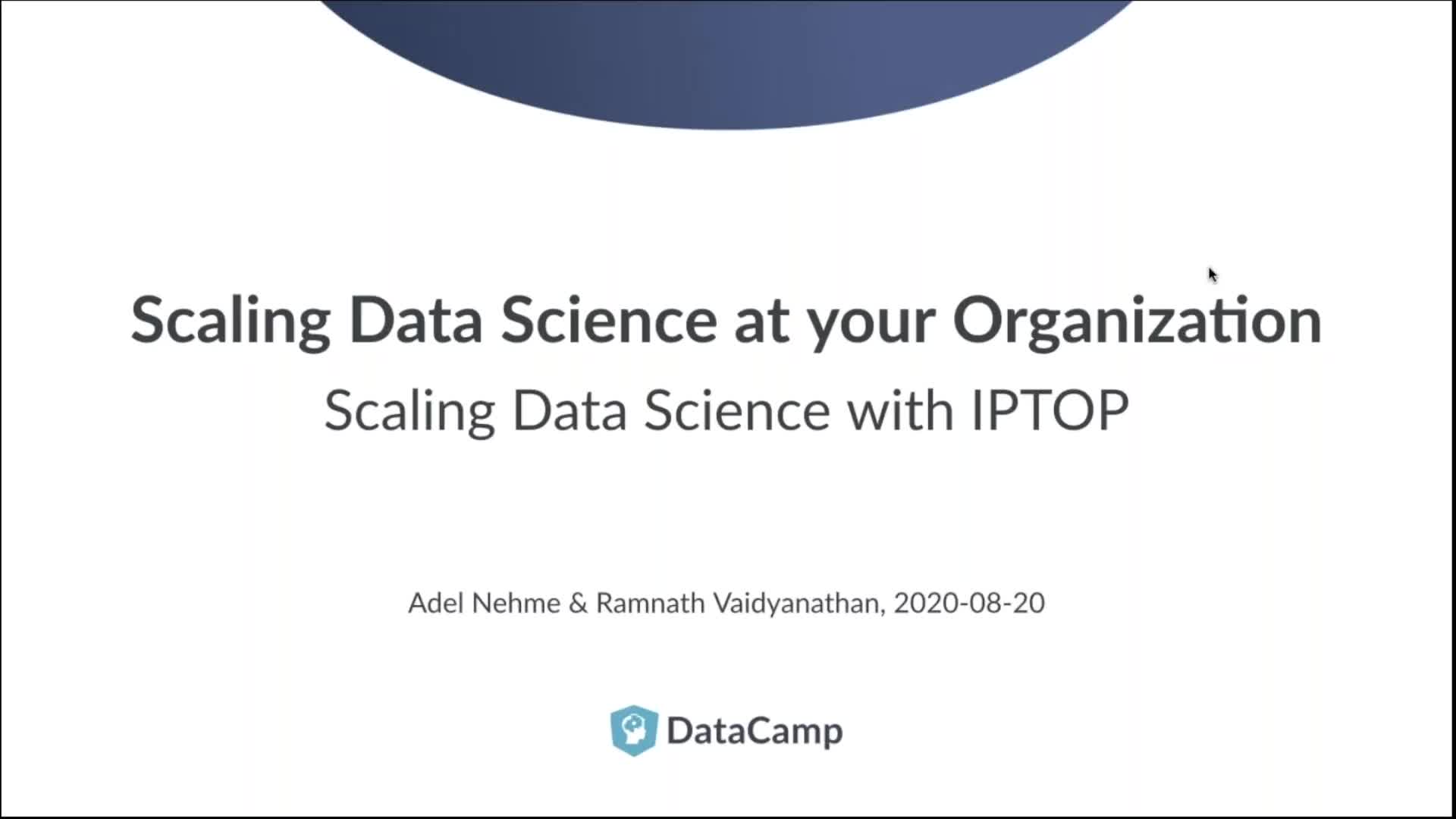Direkt zum InhaltWeitere Informationen





Lautsprecher


Ramnath Vaidyanathan
Trainierst du 2 oder mehr?
Erhalten Sie für Ihr Team Zugriff auf die vollständige DataCamp-Bibliothek mit zentralisierten Berichten, Zuweisungen, Projekten und mehrVerwandt
webinar
Building a Scalable Data Strategy With IPTOP
Learn the must-have components to seamlessly scale your data strategy.webinar
Scaling Data Science At Your Organization - Part 3
Learn how to organize your data science team to scale effectively.webinar
Scaling Data Science At Your Organization - Part 2
Scaling and democratizing data science relies on infrastructure and tools.webinar
Make the most of your organization’s data with business intelligence
Learn how to scale data insights in your organization with business intelligencewebinar
Data Skills to Future-Proof Your Organization
Discover how to develop data skills at scale across your organization.webinar
Democratizing Data Science at Your Company
Data science isn't just for data scientists. It's for everyone at your company.Join 5000+ companies and 80% of the Fortune 1000 who use DataCamp to upskill their teams.
Loved by thousands of companies
